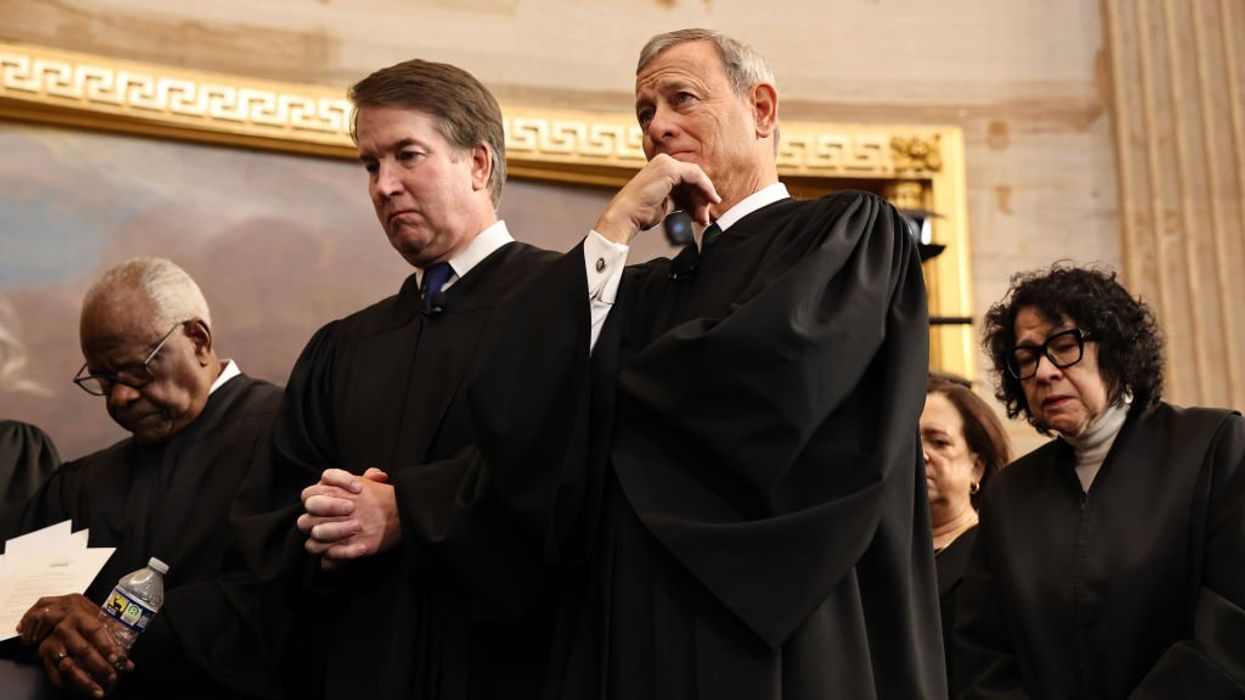In an extraordinary move yesterday, Chief Justice John Roberts issued a public statement rebuking President Donald Trump following Trump’s call for the impeachment of U.S. District Judge James Boasberg.
The controversy began when Judge Boasberg ruled against the Trump administration’s deportation plans under the Alien Enemies Act, citing misuse of the rarely used 1798 law. Trump responded furiously on Truth Social, writing:
“This Radical Left Lunatic of a Judge, a troublemaker and agitator who was sadly appointed by Barack Hussein Obama, was not elected President – He didn’t WIN the popular VOTE (by a lot!), he didn’t WIN ALL SEVEN SWING STATES, he didn’t WIN 2,750 to 525 Counties, HE DIDN’T WIN ANYTHING!”
Trump explicitly demanded Boasberg’s impeachment, further stating:
“This judge, like many of the Crooked Judges’ I am forced to appear before, should be IMPEACHED!!! WE DON’T WANT VICIOUS, VIOLENT, AND DEMENTED CRIMINALS, MANY OF THEM DERANGED MURDERERS, IN OUR COUNTRY. MAKE AMERICA GREAT AGAIN!!!”
Justice Roberts quickly countered, emphasizing that impeachment is not an appropriate response to disagreements over judicial decisions, and made it clear disagreements should be adjudicated through the appellate review process. Historically, impeachment is reserved for cases of serious misconduct, such as corruption or criminal behavior, not for disagreements over judicial rulings.
This moment is particularly striking because the judiciary typically maintains careful distance from partisan conflicts to preserve impartiality and independence. The last notable rebuke of this nature occurred in 2018, also involving Roberts and Trump. President Donald Trump denounced a judge who ruled against one of his immigration policies as an “Obama judge” and Roberts responded by saying, "We do not have Obama judges or Trump judges, Bush judges or Clinton judges. What we have is an extraordinary group of dedicated judges doing their level best to do equal right to those appearing before them. That independent judiciary is something we should all be thankful for."
Historically, direct public rebukes from the judiciary toward sitting presidents are extraordinarily uncommon. Even President Obama’s pointed State of the Union criticism of the Supreme Court’s decision in the Citizens United ruling in 2010 prompted only a quiet, informal reaction from Justice Alito—not an official rebuke.
Throughout American history, tension between the executive and judicial branches has occasionally surfaced with lasting impressions:
- Marbury v. Madison (1803): This landmark case established the principle of judicial review, allowing the Supreme Court to declare laws unconstitutional. It arose from a conflict between President Thomas Jefferson and Chief Justice John Marshall over judicial appointments.
- Franklin D. Roosevelt's Court-Packing Plan (1937): Frustrated by the Supreme Court striking down several New Deal programs, President Roosevelt proposed adding more justices to the Court. This plan faced significant opposition and was ultimately abandoned, but it highlighted the tension between the executive branch and the judiciary.
- United States v. Nixon (1974): During the Watergate scandal, the Supreme Court unanimously ruled that President Richard Nixon had to release tape recordings of Oval Office conversations. This decision reinforced the principle that no one, not even the president, is above the law.
- Bush v. Gore (2000): The Supreme Court's decision effectively resolved the 2000 presidential election in favor of George W. Bush. This case underscored the judiciary's role in politically charged disputes.
The balance of power, as written into our constitution, is an important foundation for the rule of law in the United States. A Chief Justice rebuking a President, as occurred yesterday, illustrates this delicate balance of power between the branches of government and should be watched carefully by all members of Congress and all citizens who believe in preserving the strength of our democratic republic.
Kristina Becvar is co-publisher of The Fulcrum and Executive Director of the Bridge Alliance Education Fund.
David Nevins is co-publisher of The Fulcrum and co-founder and board chairman of the Bridge Alliance Education Fund.



















Trump & Hegseth gave Mark Kelly a huge 2028 gift